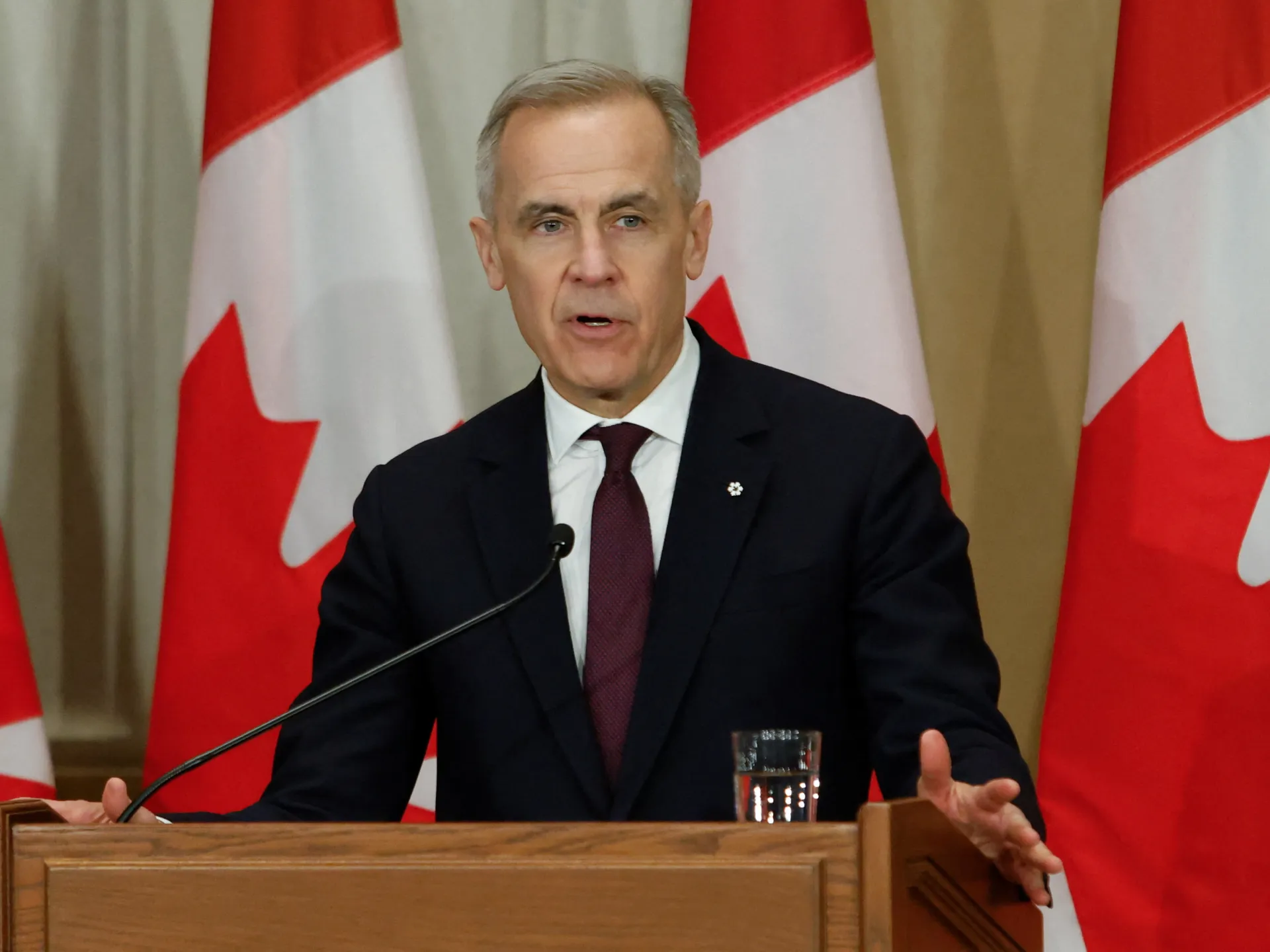Canada PM Carney says unable to rule out military role in Iran war | Military News
Canadian leader also said the US-Israeli attacks on Iran appear to be ‘inconsistent with international law’.
Published On 5 Mar 2026
Canadian Prime Minister Mark Carney said that he could not rule out his country’s military participation in the escalating war in the Middle East, after earlier saying that the US-Israeli strikes on Iran were “inconsistent with international law”.
Speaking alongside Australia’s Prime Minister Anthony Albanese in Canberra on Thursday, Carney was asked whether there was a situation in which Canada would get involved.
Recommended Stories
list of 4 itemsend of list
“One can never categorically rule out participation,” Carney said, noting the question was “hypothetical”.
“We will stand by our allies,” he said, adding that “we will always defend Canadians”.
Carney said earlier that he supported the strikes on Iran “with some regret” as they represented an extreme example of a rupturing world order.
The Canadian prime minister also stressed that his country was not informed in advance of the US-Israeli attack on Iran, in his first remarks since the war was launched on Saturday.
“We were not informed in advance, we were not asked to participate,” Carney told reporters travelling with him in Australia on Wednesday.
“Prima facie, it appears that these actions are inconsistent with international law,” he said.
“The United States and Israel have acted without engaging the United Nations or consulting with allies, including Canada,” he added, according to Australia’s SBS News, while also condemning strikes on civilians in Iran and calling for “all parties … to respect the rules of international engagement”.
Whether the US and Israeli attacks on Iran had broken international law was “a judgement for others to make”, he added.
Canada’s Foreign Affairs Minister Anita Anand said on Wednesday that efforts were under way to help more than 2,000 Canadians who have requested assistance from the government to leave the Middle East region since the war broke out on Saturday.
Anand said about half of all inquiries for help were from Canadians in the United Arab Emirates, more than 230 from Qatar, at least 160 from Lebanon, more than 90 from Israel and 74 from Iran.
Canada’s Foreign Ministry has been instructed to contract charter flights out of the UAE in the coming days, contingent on approval from the UAE government to use its airspace, the minister said.
Commercial air traffic remains largely absent across much of the region, with major Gulf hubs – including Dubai, the world’s busiest airport for international passengers – largely shut amid the conflict, in the biggest travel disruption since the COVID pandemic.
Repatriation flights chartered by foreign governments, including Britain and France, were due to leave on Wednesday and Thursday, while the UAE opened safe air corridors to allow some citizens to return home.
Under normal circumstances, thousands of commercial flights would depart the region each day.


